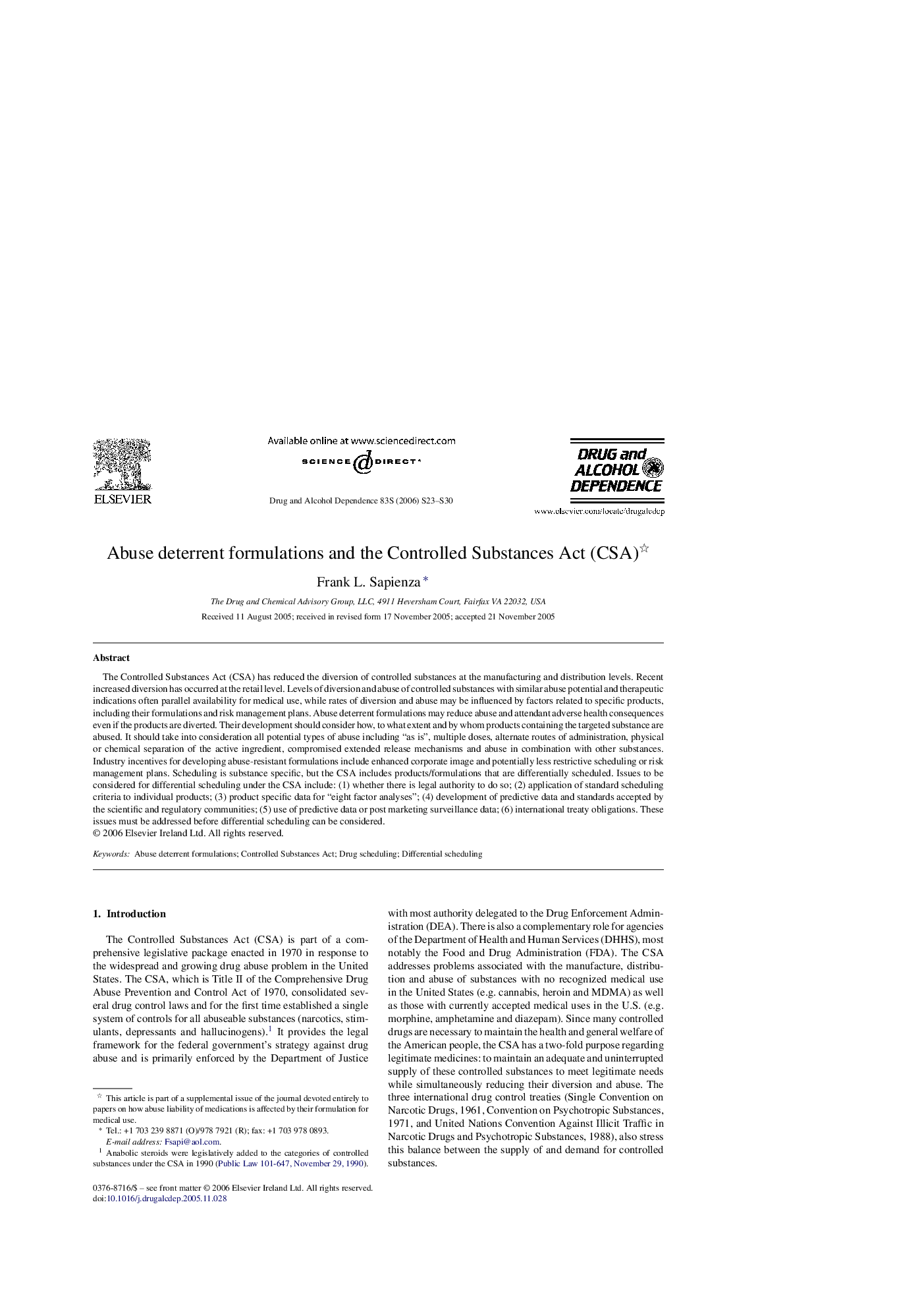| Article ID | Journal | Published Year | Pages | File Type |
|---|---|---|---|---|
| 1071420 | Drug and Alcohol Dependence | 2006 | 8 Pages |
The Controlled Substances Act (CSA) has reduced the diversion of controlled substances at the manufacturing and distribution levels. Recent increased diversion has occurred at the retail level. Levels of diversion and abuse of controlled substances with similar abuse potential and therapeutic indications often parallel availability for medical use, while rates of diversion and abuse may be influenced by factors related to specific products, including their formulations and risk management plans. Abuse deterrent formulations may reduce abuse and attendant adverse health consequences even if the products are diverted. Their development should consider how, to what extent and by whom products containing the targeted substance are abused. It should take into consideration all potential types of abuse including “as is”, multiple doses, alternate routes of administration, physical or chemical separation of the active ingredient, compromised extended release mechanisms and abuse in combination with other substances. Industry incentives for developing abuse-resistant formulations include enhanced corporate image and potentially less restrictive scheduling or risk management plans. Scheduling is substance specific, but the CSA includes products/formulations that are differentially scheduled. Issues to be considered for differential scheduling under the CSA include: (1) whether there is legal authority to do so; (2) application of standard scheduling criteria to individual products; (3) product specific data for “eight factor analyses”; (4) development of predictive data and standards accepted by the scientific and regulatory communities; (5) use of predictive data or post marketing surveillance data; (6) international treaty obligations. These issues must be addressed before differential scheduling can be considered.
